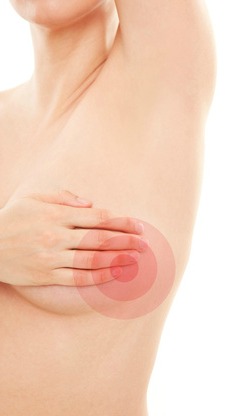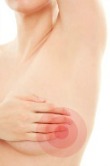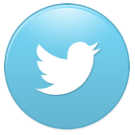Mastitis - Breastfeeding Fear Factor?
Mastitis is one of the challenges many breastfeeding mothers face. If diagnosed and treated fast, it doesn't jeopardize breastfeeding.


However, it is not a pleasant experience, so it is best to prevent it from happening, rather than cure.
Prevention is Better Than Cure
Here is what can be done to prevent breast infection:
- clean your breasts before and after each nursing session
- wash your hands before hand expressing the milk
- make sure all pump parts are kept clean and sterile (boil them regularly)
- keep the clothes touching your breasts clean and change your bra daily
- be especially cautious if your nipples crack. Cracked nipple is an excellent doorway for bacteria.
If you have mastitis, ask your doctor for help to prevent it from turning into an abscess.
Mastitis occurs in 10%-30% of breastfeeding mothers. Abscess happens in
less than 1% of nursing moms. Abscess is
a rare, but very unpleasant condition.
So What is It?
For the purpose of this article, we will only discuss puerperal mastitis. It is the one that occurs in breastfeeding mothers.
Mastitis is an inflammation of the breast tissue caused by
bacteria. It is also often called breast infection. Here is what may lead to it:
♦ Prolonged clogged milk duct. Obstructed milk flow due to irregular nursing sessions, inflammation, prolonged engorgement, pressure on the breast may cause infection of the breast tissue.
♦ Cracked nipples – an easy way for bacteria to get inside the breast.
♦ Low immune defense – when the body is unable to fight minor infections.
♦ Milk oversupply - when some milk is left in the breast after every feeding or when the breast is overfilled before each feeding and breasts are often engorged.
Symptoms
Symptoms
Breast infection is characterized by flu-like symptoms: fever (above 101F or 38.3C), headaches, fatigue, sleepiness, and feeling dizzy.
In addition, the breasts are swollen, painful to touch, warm and reddened in areas.
If you suspect breast infection, don’t stop breastfeeding. Call your doctor right away. Talking to a professional will give you peace of mind.
Your OBGYN and your baby’s pediatrician are both helpful. One can help you treat this condition, the other can assist with breastfeeding your baby through it.
Should I Stop Breastfeeding?
Back in the 80's major recommendation during breast infection was to stop breastfeeding. Especially if it was transitioning into an abscess and there was blood or puss in the milk.
Today doctors recommend breastfeeding as the best cure. The key is to get breasts emptied as often as possible.
Besides nursing there are other important mastitis treatment guidelines:
♦ Positioning is even more important during breast infection.
Correct position will relieve pain, avoid pressure on the infected breast and
prevent cracks. More about how to position correctly here.
♦ If the pain is manageable, let your baby nurse from the infected breast first. It insures more complete emptying of the breast.
♦ If it hurts too much, let your baby suck on the healthy breast, and leave the other one open. Put a towel under the infected breast and let the milk come out of it at let down. This will decrease the fullness and the tension of the breast. Then try giving your baby the infected breast.
♦ Whether by nursing, pumping or hand expression empty the infected breast at every feeding to prevent abscess.
♦ Get rest. Sleep when your baby sleeps.
♦ Drink lots of liquids.
♦ Take a doctor-recommended dose of ibuprofen to manage pain.
♦ If your doctor prescribes antibiotics, don’t ignore them. Take the entire course as prescribed. Antibiotics prescribed during breastfeeding are safe for the baby.
Important: Your milk is healthy. Don’t listen to anyone saying that the infection from your breasts can get into your milk. Keep nursing.
American
Academy of Pediatrics says: The
milk itself is not infected. Your baby will not be harmed by nursing during breast infection…
In rare cases milk may change its consistency and taste. Nutritious composition of the milk stays unchanged. If your baby is breastfeeding just fine, be fine with it too.
Breast infection is real, but so should your determination to fight it and continue breastfeeding be!
There are many ways to show your love and devotion to your kids and to win their trust. Breastfeeding is the most natural one.
Yours,
Viktoriya
Home › Breastfeeding Problems › Mastitis










